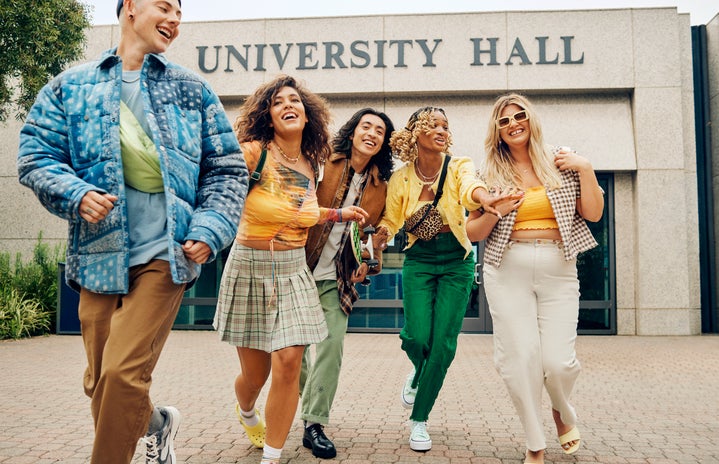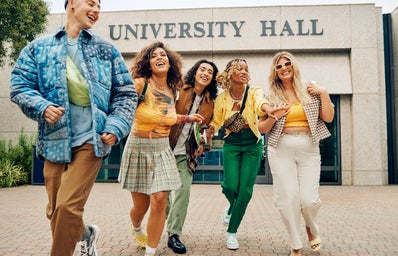As a first-generation college student, the whole process of applying and adjusting to a new environment can be challenging for many, especially without any guidance. Going to college is a very big step for everyone but especially to those who are the first. For many, the biggest challenge is that “You don’t know what you are doing. You’ve never been here before. You wanted something different to what your parents had, but no one gave you a guide. You are undecided, caught between wanting something and knowing you might never have it. (Ayisha Malik) According to research, first-generation students tend to have lower educational aspirations than non-first-generation students. This may be explained by students’ lack of information about degrees, college progress, availability of resources, and their academic preparation (Feliciano, 2006). In this interview, I will ask the person I am interviewing a few questions about how being the first to go to college has been and their experience.
Preparation for college/ Pre-college
Trying to prepare for college and making sure you meet all the requirements is something many first-generation college students struggle with due to not having the background knowledge. Some of these challenges “can range from small paperwork roadblocks to information and choice overload that leaves students too overwhelmed to make a decision. For these reasons, many first-generation students often seek out extra support throughout the college admissions process to feel comfortable and confident in their efforts” (WAI, 2020). In this interview, I asked my interviewee: “Did you have any preparations for college and did you use any of the resources to help with adjustments or get through some of the academic stressors.” She responded with “No individual preparations; just a high school course which was very helpful which was called college study skills that mentioned brief advise. I did wish I was warned about how being the first was going to go. At my university, every student gets provided with a life coach and he became very helpful, especially my second year when my family and I filed FAFSA” (Blo). I also asked if what would you have wished you knew before coming into college? She said “I wished I knew more about graduate school. When I first heard about it, it sounded like something that was beyond my reach and so I never considered it but later on it became something I was interested in and saw how it can be helpful”(Blo)! It’s moments like these many first-generation college students experience and not being aware of their potential. As she mentioned the idea of graduate school felt like she for sure couldn’t go. I believe many FGCS feel this way because it’s something that has never crossed their mind but as my interviewee mentioned during the interview “you are capable of doing whatever you want as long as you put your mind to it.” (Blo)
Feelings FGCS come across
As for many other first-generation college students, attending a university and being the first can be a scary step. In my interview, I started off by asking “How did it feel to be a first-generation student” They had responded with “Being an FGCS I felt very proud of myself because I felt like I was closer to accomplishing something I’ve always dreamed of and was very excited for a new beginning. On the other hand, being the first comes with a lot of pressure and stress because I knew my family developed these high expectations for me to not only follow through but graduate with a good degree. I also had to adapt to the new environment and not having that support system was also though” (Blo) Being a first-generation college student is something many feel proud of, but it also comes with an added layer of stress that other students may not experience which my interviewee touched on. This occurs because no one is there to guide you or give you a heads up on what to expect. This may lead FGCS to feel like they are walking in the dark but also feel the need to do well due to them having the opportunity to attend a university.
Obstacles
Because many first-generation college students don’t have that set example or someone to go to for questions, many first-generation students encounter obstacles. The admission process, filing FAFSA, choosing classes and a career are just to name a few of the obstacles. In the interview, she was asked what the hardest obstacle you’ve faced either in the process of applying or the first few weeks/months of college and responded with “The biggest struggle was definitely getting started with applying to schools and filing FAFSA! Also being away from home and learning how to manage my time. I had to learn how to balance class, games, and social events.” (Blo)
Many FGCS experience imposter syndrome which is when one has feelings of not being enough or self-doubt of one’s accomplishments. I asked her “Did you experience this, if so how did get through it and stay motivated?” and responded with “I became aware of imposter syndrome when I became very involved on campus such as being on executive board of Latinos Unidos but other than that I felt like I was lucky because my school has a multicultural club which made me feel included very early on! I also took very hard classes and they made me rethink my whole life or whether college was for me or not.!”(Blo) Many FGCS experience and, at times, drop out. First-generation college students may experience this due to not knowing what to expect for the future or how things should be done and even not looking like those around them. This may lead them to question if they are truly qualified to be in school.
To end my interview I asked my interviewee if she any last thoughts and wanted to end it by stating “College is for everyone and it’s okay to not know off the bat what you want to do in life, just keep moving forward.” I couldn’t agree anymore and knowing how overwhelming college can be as a FGCS, it’s important to remind we to just keep pushing and just take it day by day!

